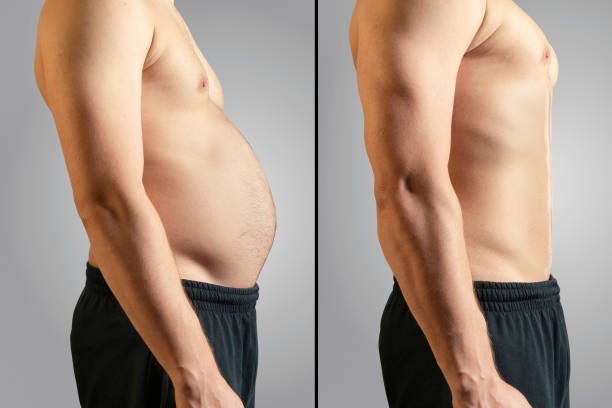-
News Feed
- EXPLORE
-
Pages
-
Groups
-
Events
-
Blogs
-
Marketplace
-
Offers
-
Jobs
-
Developers
Achieve Peak Performance with Smart Diet Plans and Fitness Regimens

Diet plans and fitness are two essential pillars of a healthy lifestyle. In today’s fast-paced world, maintaining good health requires a structured approach to both nutrition and physical activity. Diet plans are not just about eating less but about eating right, ensuring your body receives the necessary nutrients to function optimally. Fitness, on the other hand, emphasizes physical strength, endurance, and overall well-being. Combining both diet plans and fitness creates a synergy that enhances fat loss, increases energy levels, and improves mental clarity.
Understanding Diet Plans: The Foundation of Nutrition
Diet plans serve as a roadmap for your nutrition journey. They are personalized guidelines that take into account your health goals, age, gender, physical activity levels, and medical conditions. A well-designed diet plan focuses on macronutrients like carbohydrates, proteins, and fats while also ensuring sufficient intake of essential vitamins and minerals. The importance of portion control and balanced meals cannot be overstated. For fat loss, calorie deficits are often incorporated into diet plans, but it’s crucial to maintain nutrient density. Crash diets often fail because they focus on quick fixes rather than long-term habits. Effective diet plans emphasize consistency and sustainability. Visit https://theignition.simplydm.co.uk/usa
Fitness: More Than Just Physical Appearance
Fitness is not just about having a toned physique; it encompasses strength, endurance, flexibility, and cardiovascular health. A structured fitness program typically includes a combination of resistance training, cardiovascular exercises, and flexibility workouts. Resistance training helps build and maintain muscle mass, which is essential for boosting metabolism and supporting fat loss. Cardiovascular exercises, such as running, cycling, or swimming, improve heart health and increase calorie burn. Flexibility exercises, including yoga or stretching routines, enhance mobility and reduce the risk of injury. Fitness contributes significantly to mental health, reducing stress, anxiety, and depression while boosting mood and cognitive function.
The Role of Diet Plans in Fat Loss
Fat loss requires a strategic approach to both nutrition and exercise. Diet plans play a central role in this process by managing calorie intake and ensuring nutrient balance. Consuming high-protein foods helps preserve muscle mass during fat loss while increasing satiety. Fiber-rich foods, such as fruits, vegetables, and whole grains, support digestion and reduce unnecessary snacking. Hydration is another critical factor in fat loss, as water helps regulate metabolism and control appetite. Instead of eliminating entire food groups, effective diet plans focus on moderation and smart food choices.
Effective Workout Strategies for Sustainable Fat Loss
Workouts are an essential component of any fat loss strategy. High-Intensity Interval Training (HIIT) has gained popularity for its efficiency in burning calories and improving cardiovascular health in shorter sessions. Strength training is equally important, as it builds muscle and enhances metabolic rate even at rest. A balanced workout routine should include both resistance exercises and cardio workouts. Consistency is key—short, frequent workouts are often more effective than sporadic long sessions. Additionally, incorporating variety into workouts prevents plateaus and keeps motivation high.
Creating a Personalized Diet and Fitness Plan
Everyone’s body is different, which is why a one-size-fits-all approach rarely works in diet plans and fitness routines. Personalization is essential to achieve sustainable results. Consulting with a certified nutritionist and fitness trainer can help tailor a plan specific to your goals. Tracking progress is equally important, whether through food journals, fitness apps, or regular check-ins with a professional. Goals should be realistic and time-bound to avoid disappointment and maintain motivation.
The Connection Between Diet, Fitness, and Mental Health
Diet plans and fitness don’t just impact physical health; they also play a significant role in mental well-being. Proper nutrition supports brain health, stabilizes mood, and enhances cognitive performance. Physical activity, meanwhile, triggers the release of endorphins, the “feel-good” hormones that alleviate stress and anxiety. Together, a balanced diet and regular exercise form a powerful combination to combat mental health challenges and improve overall quality of life.
Common Mistakes to Avoid in Diet and Fitness Plans
Many people fall into common traps when pursuing diet and fitness goals. Over-restriction in diet plans often leads to nutrient deficiencies and unsustainable eating patterns. Similarly, overtraining in fitness can cause burnout, fatigue, and even injuries. Unrealistic expectations, such as rapid fat loss or achieving a certain body type in a short period, often result in frustration and demotivation. It’s essential to prioritize long-term consistency over quick fixes.
Conclusion: The Balanced Approach to Diet Plans and Fitness
Diet plans and fitness are not separate entities but two sides of the same coin. Achieving optimal health requires dedication, consistency, and a balanced approach. Proper nutrition fuels your workouts, while fitness enhances your body’s ability to utilize nutrients effectively. Whether your goal is fat loss, muscle gain, or overall well-being, a personalized and sustainable plan is the key to long-term success. Prioritize small, consistent efforts over drastic measures, and remember that health is a lifelong journey.
- Art
- Causes
- Crafts
- Dance
- Drinks
- Film
- Fitness
- Food
- Games
- Gardening
- Health
- Home
- Literature
- Music
- Networking
- Other
- Party
- Religion
- Shopping
- Sports
- Theater
- Wellness
- Cryptocurrency

